Between 6 and 9 June, European citizens will be called to elect their representatives to the European Parliament. An election that takes place within an international geopolitical scenario marked by wars, winds of nationalism and sovereignism, nuclear threats, energy crises, increasingly accentuated inequalities and injustices.
Which European Union will we have after these elections? What model of relationship with the rest of the world, what possibility of investing in processes of justice and equality? What space of integration and supranational democracy could we imagine? Will the electoral moment establish a “before and after” of the Union as we have known it? Are we sure that the one we have now allows us to continue to live in a peaceful, democratic context, attentive to mending the social and territorial inequalities of its territories?
Is there an alternative vision that allows us not to adhere to the cold economistic approach of the “frugal” or the dangerous and loud one of the nationalist sovereignists who daily attack the idea of the European Union understood as that space of integration and peace dreamed of by Altiero Spinelli?
The Inequalities and Diversity Forum – publicly launched on 16 February 2018, with the participation of eight organisations, a group of people and chaired by Fabrizio Barca – promoted a national debate on which Europe is possible, through the publication of a volume “Which Europe” (ed. Donzelli) edited by Elena Granaglia and Gloria Riva and with contributions from scholars, experts, representatives of communities of practices within or close to the FDD.
The volume does not, naturally, enter into the electoral and party debate. Rather, it intends to offer, with articulated and lateral points of view, a contribution of reflections, information and comparisons that can enrich the national debate on which Europe we want.
“The path for us to take is not that of indifference or opposition to the EU. The European Union can be a precious resource for the destinies of the world, even more so in this phase of growing global disorder and growing risks to peace. However, there is no need for “just any Union”.
They compare and challenge each other three distinct and alternative ideas of Europe: the current one which, despite some progress in the digital, environmental and post-pandemic investment fields such as the EU NextGen, remains profoundly marked by the dominant neo-liberal approach which has exacerbated social and territorial inequalities over the decades. The conservative – authoritarian one, which does not question the neo-liberal approach but “corrects” it with nationalism, corporatism, closure and exclusion. Finally, the one aspired by the Forum and by the progressives and pro-Europeans: qthat of a Europe of social and environmental justice and peace.
A Union as “place of promotion of universal welfarenot penalized by austerity; where knowledge and data are accessible and available to communities; where the ecological transformation is accelerated in the interest first of all of the most vulnerable to achieve un fairer way of living and working and where public policies and government are democratized. A Europe that becomes aware of its fundamental role in migratory processes and that it acts as a constructor of cooperation and peace”.
The volume contains 13 contributions on some of the key, urgent and significant themes for designing a Europe of social and environmental justice: Institutions, macroeconomics, inequalities, welfare, climate crisis, migration, Europe – World are some of the issues to reflect and discuss .
The contribution of Gloria Rivajournalist expert in economic policy, macro-economics, health and work, on the European institutions represents the architrave on which all the other themes rest.
Without a profound reform of the institutional architecture of the European Union, it is difficult, in fact, to pursue common objectives capable of tackling the great challenges of our time. The ultra-conservative wind blowing in these elections, and the probable and worrying shift to the right, is partly due to the rigidification of the Union’s institutions, unsuitable for pursuing social and environmental justice objectives. The unanimous vote of the Council is a critical point, because it blocks strategic decisions. The transition to majority voting, the increase in the visibility and democratic legitimacy of the Commission and greater decision-making power of the European Parliament should be institutional turning points to accompany the process of change.
Finally the contribution of Fabrizio Barca and Sabina De Luca on cohesion policy, tells us that the place-based strategy for cohesion, introduced in the 2009 Agenda, has not been effectively implemented in the 2021-27 programming, preferring rapid projects that do not address inequalities. The next European Parliament will have to strengthen cohesion by adopting people-sensitive policies, through six key actions: renewing administrations, strengthening centres, avoiding sectoral silos, learning from results, ensuring financial and strategic additionality, establishing strategic national contracts.
For each of the topics covered, proposals, objectives and possible paths are presented, to ensure that the book is a “pretext for building possibilities”.
The volume is intended to be a tool for discussion, analysis and in-depth analysis and is accompanied by a “Trip to Italy with Europe in mind” which, starting on April 4th, ends on June 7th, touching, in this period, over 70 places throughout the country. From Calabria to Veneto, it touched all the regions of Italy, involving communities of practice, local experts, attentive and interesting citizens.
On the site https://www.forumdisuguaglianzediversita.org/quale-europa/#viaggio there is a travel diary that tells of all the meetings that have been held in these two months, organized by organizations that are members or friends of the Forum, by bookshops independent, hybrid places, libraries.
That is to say that widespread, rooted and powerful fabric of an Italy that does not give in to a dark narrative of the Europe to come, but which on the contrary questions itself, acts and desires an open, fair Europe, attentive to people, to territories and the planet. A travel diary that comforts, on the eve of the European elections in June, for the wealth, tenacity and will to build that exists in many places in Italy and Europe.
ABSTRACT
Between 6 and 9 June, European citizens will be called to elect their representatives to the European Parliament. An election that takes place within an international geopolitical scenario marked by wars, winds of nationalism and sovereignty, nuclear threats, energy crises, inequalities and increasingly accentuated injustices. Which European Union will we have after these elections? Which model of relationship with the rest of the world, which possibility of investing in processes of social justice? Will the electoral moment ratify a ‘before and after’ of the Union as we have known it? The one we have now, are we sure it will allow us to continue living in a peaceful, democratic context, attentive to mending the social and territorial inequalities of its territories? The Forum Inequalities and Diversity – launched on 16 February 2018, involving eight organisations, a group of people and chaired by Fabrizio Barca – has promoted a national debate on which Europe is possible, through the publication of a volume ‘Quale Europa’ (ed. Donzelli) edited by Elena Granaglia and Gloria Riva, with contributions from researchers, experts, representatives of communities of practice within or close to the FDD.
Click here and read the other articles in the “VOICES FROM EUROPE” section of LETTURE LENTE





